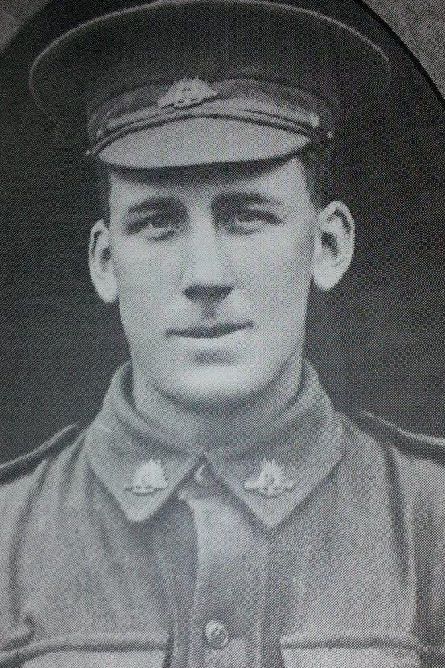|
WW1
| |
 |
If you could spare
a few dollars to help with the running costs of
hosting this website to keep it alive would be
very much appreciated.
Thankyou from
Gravesites of Tasmania in advance. |
|
Woolley, William George Edward

Born 4th December 1887 Bothwell Tasmania the son of
William and Sarah Jane Woolley (nee Horne) and married
to Julia Ellen Ryan, a farm labourer he embarked
Melbourne 21st October 1916 on board “HMAT
Port Melbourne” with the 40th Infantry
Battalion.
He was appointed Lance Corporal 29th July 1917, Corporal
on the 21st September 1917 and then Sergeant
on the 5th October 1917.
He was killed in action 21st February 1918 in
Belgium and is commemorated in the
Berks Cemetery Extension, Comines-Warneton, Hainaut,
Belgium.
Distinguished Conduct Medal
Awarded the Distinguished Conduct Medal for conspicuous
gallantry and devotion to duty. During the advance his
platoon was held up by the enemy in a strong position.
Seizing a Lewis gun, the crew of which were all
casualties, he fired it until the enemy
opposition was overcome
and the advance able to continue. He then organised a
lewis gun team and covered the rest of the Company while
they dug in.
he fired it until the enemy
opposition was overcome
and the advance able to continue. He then organised a
lewis gun team and covered the rest of the Company while
they dug in.
Mrs. W. G. E.
Woolley of Uxbridge has received the following letter,
with medal, from the Base Records Office Melbourne :-
"Dear
Madam,-It is with
feelings of admiration at the gallantry
of a brave Australian soldier who nobly
laid down his life in the service of our King and
country that I am
directed by the Honourable the Minister
to forward to you as the next-of
kin of the late No. 2418 Sergeant W.
G. E. Woolley, 40th Battalion, Australian Imperial Force
the Distinguished Conduct Medal which His Majesty
the King has been graciously pleased to
award to that gallant soldier for conspicuous
bravery and devotion to duty
while serving
with the Australian Imperial Expeditionary Force. I am
also
to ask you to accept his deep
personal
sympathy in the loss which, not only
you, but the Australian army, has sustained by the death
of Sergeant W. G
E. Woolley whose magnificent conduct
on the field of battle helped to earn
for our Australian soldiers a fame which
will endure as long as memory lasts.''
The Mercury
15th August 1918
|

